
ANC vision is to use technology to bring happiness and smiles back into people’s lives.
Asha Neuro Modulation Clinic
Stop Suffering and Start Recovering with our Advanced Neuromodulation Techniques.
What is Neuromodulation:
Neuromodulation is the alteration of nerve activity in a target area by using technology. It has wide applications in multiple areas of medicine. In relation to psychiatry and mental health, most of the neuromodulation techniques involves techniques like repetitive Transcranial Magnetic Stimulation (rTMS), Transcranial Direct Current Stimulation (tDCS) and Electroconvulsive therapy (ECT).
We at Asha hospital perform Non-Invasive Brain Stimulation (NIBS) techniques (TMS/tDCS) on a regular basis, either as a primary form of treatment or as an adjunct to the medical management in patients with various Neuro-Psychiatric disorders.
We have already completed a Decade of our Journey in Neuromodulation.
We perform about 40+ sessions of TMS, 10+ sessions of tDCS and 10+ sessions of Biofeedback on daily basis in our Hospital.We have completed doing almost 150,000 sessions of rTMS, 50,000 sessions of tDCS and Biofeedback, and this wealth of experience bolsters our confidence in the safety and efficacy of these treatment modalities.
In June 2022, we have started a new specialized centre for Neuromodulation, Asha Neuromodulation Clinic (ANC), at Gachibowli.
It is a Speciality Outpatient Centre for Consultations, Counselling sessions, rTMS, DeepTMS, Neuro-navigation, tDCS, Biofeedback etc.





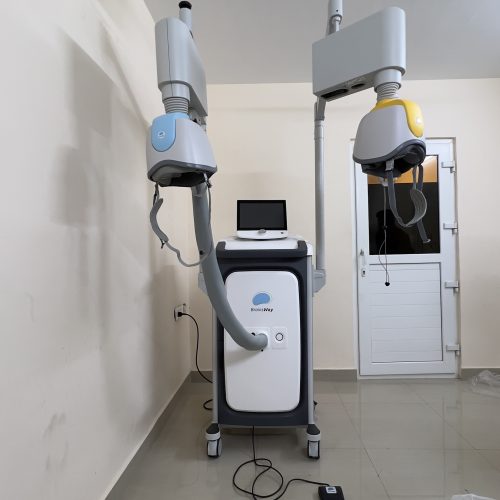








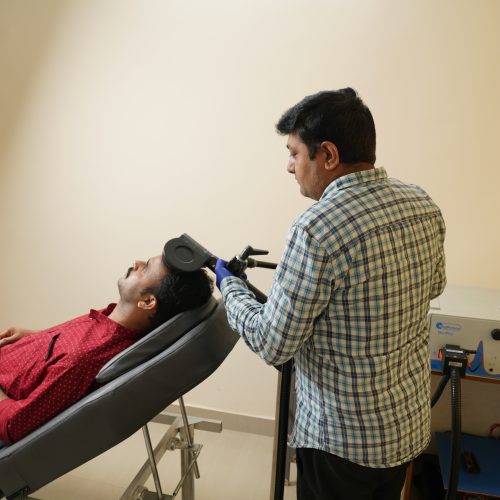
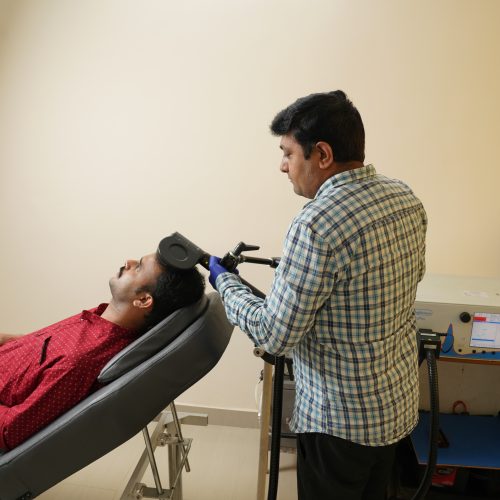




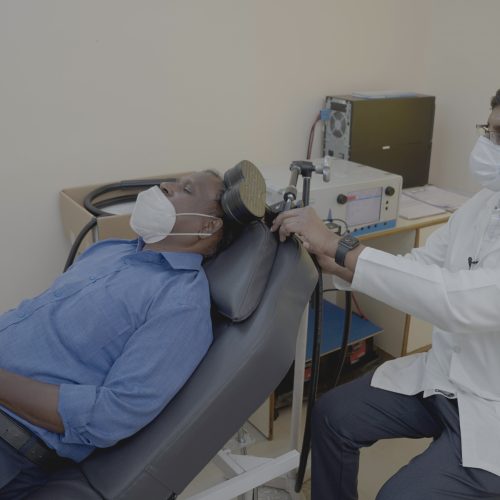
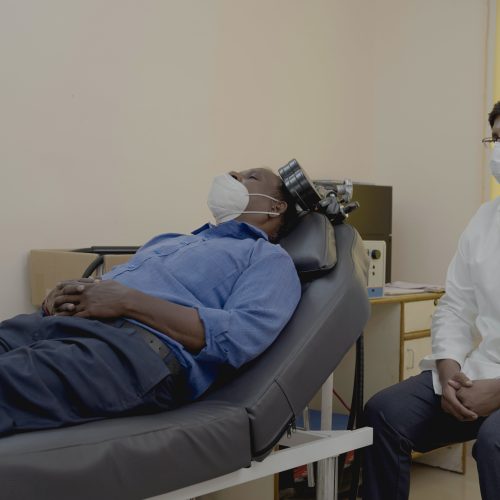
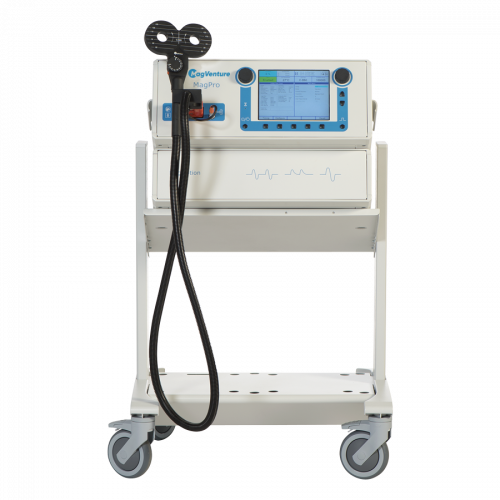
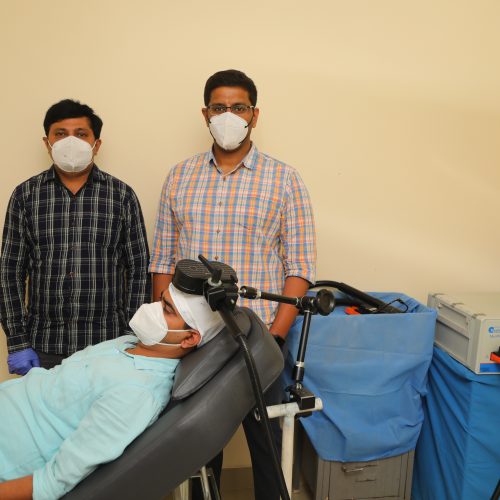

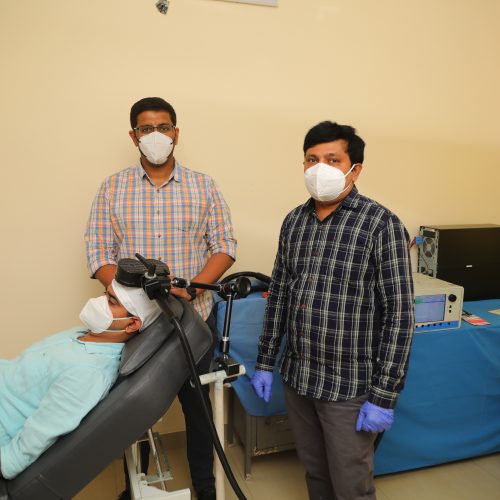
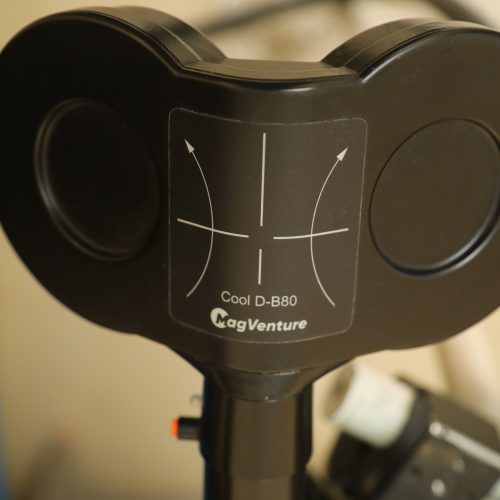




We are one of the only institutions in India to use the advanced Brainsway Deep TMS system and TMS with Neuronavigation. The Brainsway Deep TMS system is one of the latest and most cutting-edge technologies in the field, its advanced technology stimulates deeper areas of the brain compared to a traditional rTMS system.
Our team of Psychiatrists, Psychologists, and other staff constantly are engaged in giving the best care in the neuromodulation clinics.
What is TMS?
Transcranial magnetic stimulation, or TMS, is a safe, effective, and non-invasive form of brain stimulation. Approved by the US Food and Drug Administration (FDA), TMS devices operate outside of the body and use magnetic fields to stimulate nerve cells in specific areas of the brain to improve symptoms of Depression, Anxiety, OCD, Addictions, Cognitive impairments etc.
Services available at our Clinic
- Psychiatric Consultations
- Counselling sessions
- TMS and Deep TMS sessions
- Neuro-navigation
- t DCS
- Biofeedback etc
In what conditions is TMS used?
FDA (USA) and CE (Europe) have approved TMS for many Neurological and Psychiatric conditions. Few to name are Depression, OCD, Addictions, Anxiety, Cognitive Impairments, Auditory Hallucinations, Negative symptoms in Schizophrenia, Suicidal ideations, Parkinson’s disease etc.
How long has TMS been researched in studies before getting FDA approval?
TMS has been researched since 1985, before it was approved by the US FDA in 2008. The first studies of daily left prefrontal high frequency TMS for depression date back to the mid-1990’s at the National Institute of Health (NIH) in Washington, DC. The technology was investigated with millions of patients in the US and other countries. There is a large body of evidence that TMS is beneficial in relieving depressive symptoms in treatment resistant patients who failed more than one antidepressant drug therapy in their current depressive episode. In similar lines, FDA approved TMS therapy for OCD and smoking addiction also. Our devices at Asha Neuromodulation Clinic are the best in class and approved by US FDA.
How do I know if I am a good candidate for TMS?
The best way to determine whether you’re a good candidate for transcranial magnetic stimulation is to consult your doctor in the Asha Neuromodulation Clinic. They will perform a detailed assessment and discuss with you in detail regarding the procedure and any other questions you may have.
In whom is TMS contraindicated or avoided?
There are a few patients in whom TMS therapy is contraindicated or avoided (e.g., any ferromagnetic materials, Implants, devices etc. in and around the head and neck are contraindications for TMS therapy). Obtain this information, we do a detailed screening procedure for every patient before starting TMS therapy. Please take our advice at Asha Neuromodulation Clinic regarding the same in case of any doubt about your suitability for TMS therapy. We are here to Help and Guide you.
How many sessions of TMS are required?
It is primarily decided by your treating doctor, but usually for a therapeutic response you need at least 10-20 sessions in total. One or two sessions are administered per day, based on the recommendation of your doctor.
How much time does a session take?
Each session lasts between 20-30 mins depending upon the protocol used.
Does TMS require any preparation prior to the session?
We will screen you prior to administering TMS to ensure your compatibility with the therapy. Preparations like (e.g., fasting prior to a session, anaesthesia) are absolutely not required.
Does TMS have any side effect?
TMS usually does not have serious side effects. Some mild side effects may include scalp muscle twitching, mild headache etc. One very uncommon adverse event with TMS is a seizure episode (< 0.1%). In our clinical experience with TMS for the last 10 years, we never saw a patient discontinuing the treatment in view of side effects and we never saw a patient who had a TMS-induced seizure.
Will I require any recovery time after an rTMS session?
No. Since no anaesthesia and no other invasive procedure is involved, you will typically not require any specific recovery time after an rTMS. You will be able to continue with your day as soon as the treatment is over. If you experience any side effects, we may recommend a brief period of observation at the clinic to ensure your safety.
Can I use my tablets along with rTMS?
Yes, it is safe and recommended to continue your tablets along with the rTMS treatment. It is best to take the advice of the doctors about the use of medications during and after the TMS sessions.
Which technology do you use for TMS?
We have two types of TMS technologies at our clinics – the latest Brainsway deep TMS system and the MagVenturerTMS system. The Brainsway deep rTMS system is one of the latest and most cutting-edge technologies in the field, and has been FDA cleared for Major Depression, Depression with anxious distress, Obsessive Compulsive Disorder and for Nicotine dependence. Its advanced technology stimulates deeper areas of the brain than those that can be stimulated by a traditional rTMS system. We are one of the only centres in the country and one of the few in the world to use this technology in psychiatry.
What is t DCS?
Transcranial direct current stimulation (tDCS), is a non-invasive, painless brain stimulation treatment that uses direct electrical currents to stimulate specific parts of the brain. A constant, low intensity current is passed through two electrodes placed over the head. The current that enters the brain tissue helps to modulate neuronal activity. There are two types of stimulation with
tDCS: anodal and cathodal stimulation. Anodal stimulation acts to excite neuronal activity while cathodal stimulation inhibits or reduces neuronal activity. tDCS is used to treat Depression, Anxiety, Hallucinations, Cognitive Dysfunctions etc.
What are the side-effects due to tDCS treatment?
Transcranial direct current stimulation (tDCS) is usually well tolerated by many patients of different age groups. Very few patients feel discomfort in the form of slight burning or itching sensation over the scalp. The saline or gel used during the procedure will counteract these effects in majority of patients. This is self-limited and disappears after the treatment is over.
What do you mean by Biofeedback?
Biofeedback is fundamentally a relaxation technique that employs visual or auditory feedback to patients in anxiety, or other related disorders. In a biofeedback session, the patient learns to adapt to the stressful situation and learns to control the visceral behaviour. Heart rate, muscle tension, respiration, skin conductance, temperature are a few of the physiological variables the patient learns to control after the biofeedback. Finally, the patients will be able to learn how to relax their minds and bodies and better cope with the symptoms of stress. Apart from anxiety biofeedback is used for tension headaches, neurofeedback, various breathing exercises etc.
What difference will Neuromodulation create to the diagnosis and management of a psychiatric illness?
Neuromodulation can improve the clinical outcome in many psychiatric conditions. Single pulse TMS may help in diagnosis of a few conditions also. Neuromodulation provides an objective platform in the management of a psychiatric illness. It also minimises, to a significant level, the side effects of the conventional ECT treatment used in treatment resistant cases. Neuromodulation provides a space for counselling and other behavioural interventions during the treatment. This has the potential to dramatically improve the patients’ condition in disorders like OCD and depression.
Why should one choose Asha Neuromodulation Clinic?
Doctors and Staff at Asha Neuromodulation Clinic have in depth knowledge in the field of Neuromodulation clinical practice and research. We use advanced and safe technologies which are US FDA and CE approved. Due to more than a decade of experience in this field and overwhelmingly positive patient feedback, we are confident about the benefits of neuromodulation, and we are committed to making the latest advances in our field accessible to our patients in a safe and affordable manner.
MORE ABOUT BRAINSWAY :
- It is the latest, cutting-edge technology in TMS
- Application of this technology led to FDA approval of TMS treatment in Obsessive Compulsive Disorder and Nicotine Dependence
- It is a “Deep TMS” technology, which means that deeper areas of the brain can be stimulated with these machines than with conventional rTMS
- Deep TMS is FDA-cleared and clinically proven to alleviate symptoms of depression, OCD etc without causing significant long-lasting side effects.
- It is delivered with the help of machines having specific “helmets” which contain magnetic coils, which are tailored to administer TMS protocols for individual disorders like major depression, OCD, Nicotine dependenceetc (For eg: H1 coil for depression, H4 coil for Nicotine dependence, H7 coil for OCD).
- The treatment coil or the helmet delivers gentle electromagnetic pulses to key areas in your brain involved in mood regulation, control of obsessive thoughts, compulsions, addictive behaviour, etc.
- These pulses feel like mild tapping on your scalp. You’ll be comfortably sitting in a chair or reclining on a couch, awake and alert during the treatment.
Our Team::

Dr. M.S. Reddy
Dr. M.S. Reddy
Director,
Consultant Psychiatrist

Dr.Chytanya Deepak
Dr.Chytanya Deepak
Director,
Consultant Psychiatrist

Dr. G. Prasad Rao
Dr. G. Prasad Rao
Director,
Consultant Psychiatrist

Dr. Anil Reddy
Dr. Anil Reddy
Consultant Psychiatrist
Transcranial Magnetic Stimulation (Hands on Training) (AIIMS, Delhi)

Dr. Sandeep Kondepi
Dr. Sandeep Kondepi
Consultant Psychiatrist
Transcranial Magnetic Stimulation (Hands on Training) (AIIMS, Delhi)
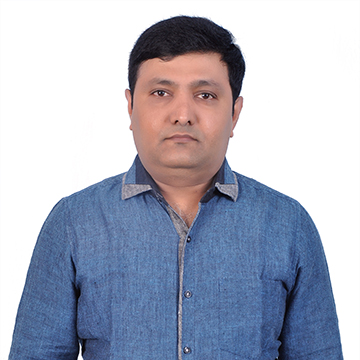
M. Venkata Ramana
M. Venkata Ramana
Technical Expert
Address :
4th Floor, Fantasy Square Building,
Biodiversity Circle,
Gachibowli, Hyderabad,
Telangana 500032
Email : anc@ashahospital.org
For queries: 7794857794
For appointments : 9666655558
